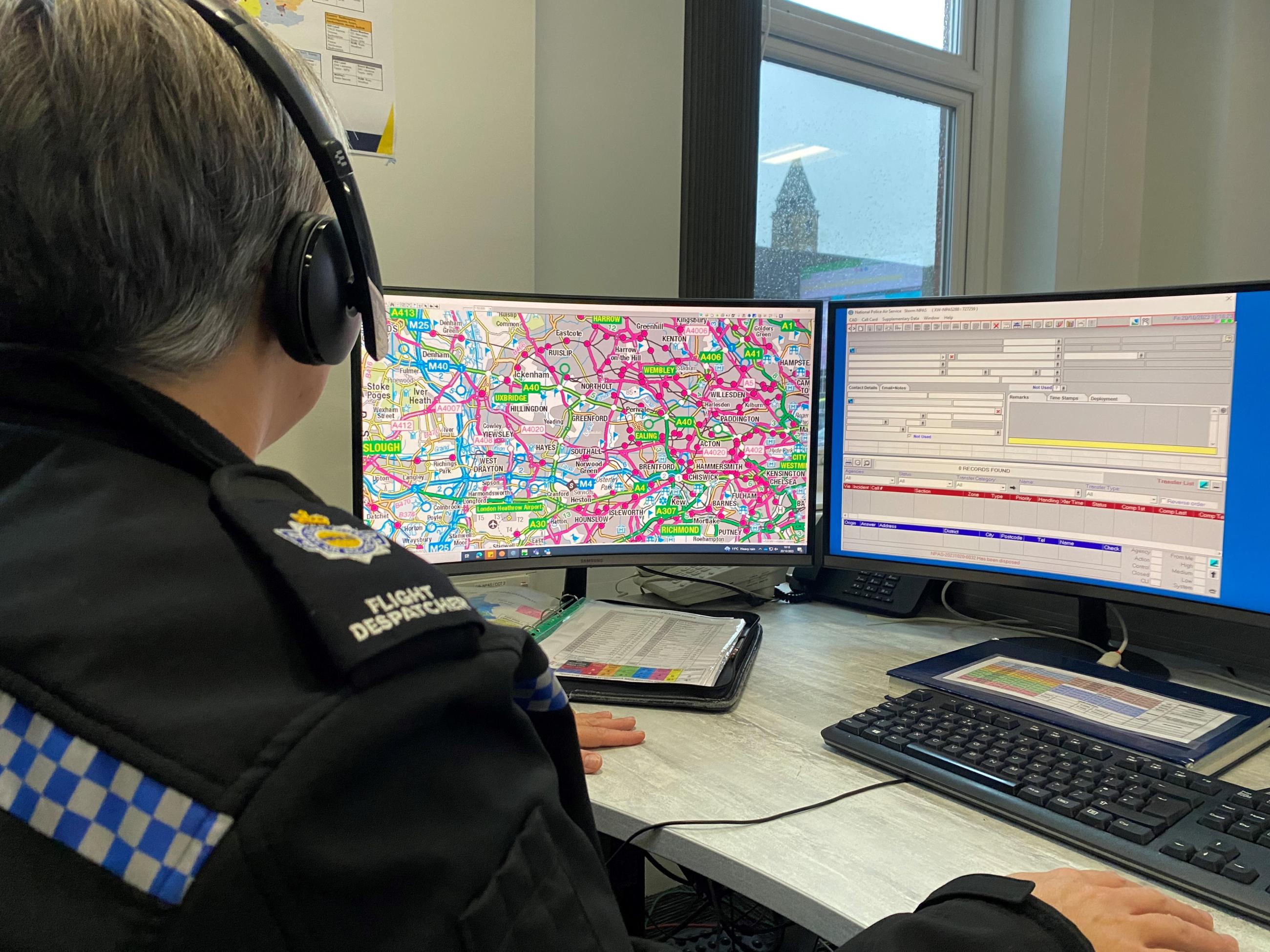Behind the scenes of NPAS air operations
Monday 23 October 2023
Behind every NPAS flight is a dedicated team of highly trained professionals working from a national Operations Centre to deploy our aircraft to police taskings.
As we mark International Control Room Week 2023, we shine a light on the critical role of NPAS despatchers in the delivery of safe and efficient national police air support across England and Wales.
Working from a small centre in Wakefield, West Yorkshire, the team works around the clock, liaising with police forces and air crews to ensure our aircraft are where they need to be to support officers and police staff on the ground.
But ask any member of the team what their number one priority is, and they will all say the same – ‘safety’.
Our Operations Centre despatchers track our aircraft whenever they are airborne, both via an on-screen map and through set-timed radio checks. Monitoring is particularly important on lifting and landing which is statistically the most hazardous part of a flight.
They also record who is on board and where they are seated.
At the start of each 12-hour shift, the Flight Duty Officer will be updated on any safety issues, the location of aircraft, weather conditions, engineering requirements and crew and aircraft availability. This enables them to make the best decisions for deployment when a police force calls up for help. This is most commonly for high-speed pursuits, firearms incidents, vehicle or suspect searches or searches for a high-risk missing person.
NPAS receives, on average, over 100 calls for service every day, from the south coast up to the Scottish borders.
These are managed by a team of up to five people who individually monitor six radio channels which cover the whole of England and Wales, plus telephone lines and command and control computer systems which are digitally linked to most police forces. They despatch aircraft from all 15 NPAS bases.
The job of an NPAS despatcher is unique and vital – and usually goes unseen.
As well as police forces, they regularly liaise with prisons, military bases, nuclear plants and power stations to make sure all high security locations are fully aware when NPAS aircraft are in their air space.
The team plays an ever-important role in ‘deconfliction’. This involves instructing crews of other air space users to avoid an airborne strike, which could be devastating.
The increasing popularity, commercially and privately, of people flying drones has resulted in a significant risk to safety. Laser strikes are a major hazard too. Everything is recorded by the despatchers.
Checking on the wellbeing of a crew, during and after an event, is important to make sure, especially after a potentially distressing incident, they are safe to continue to fly.
Chief Supt Vicki White said: “People see the helicopters and aeroplanes out flying but don’t necessarily think about the people behind the scenes, delivering vital work to make sure we deploy those aircraft in the most efficient, and safe, way. The team is integral to our service, working in partnership with police forces to disrupt criminals and safeguard the public. They do an excellent job, round the clock, playing their part in making our communities safer.”

